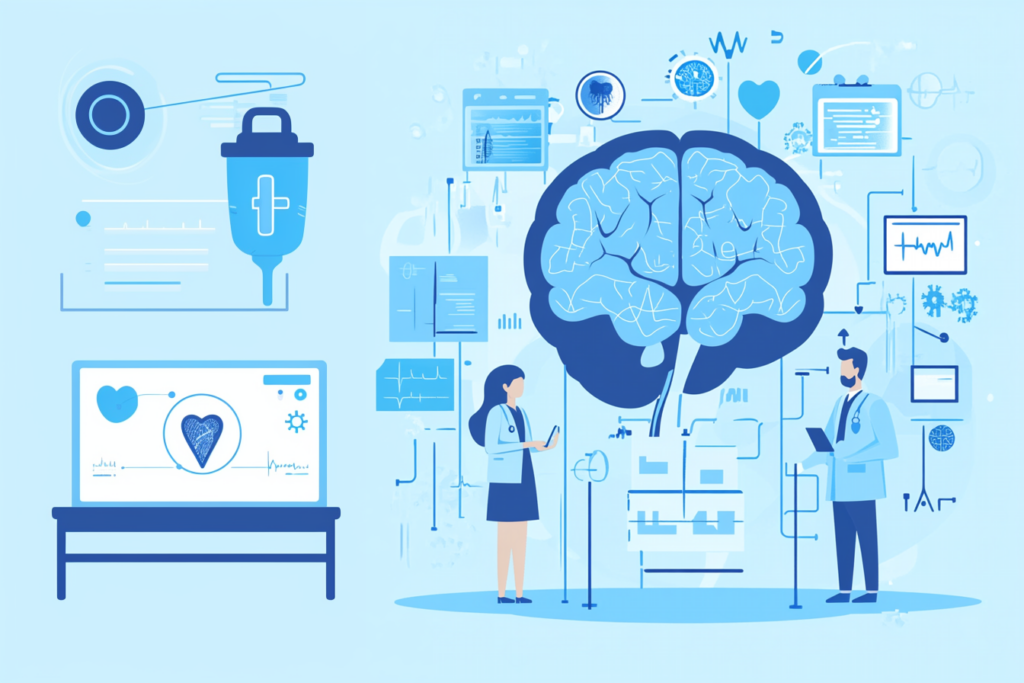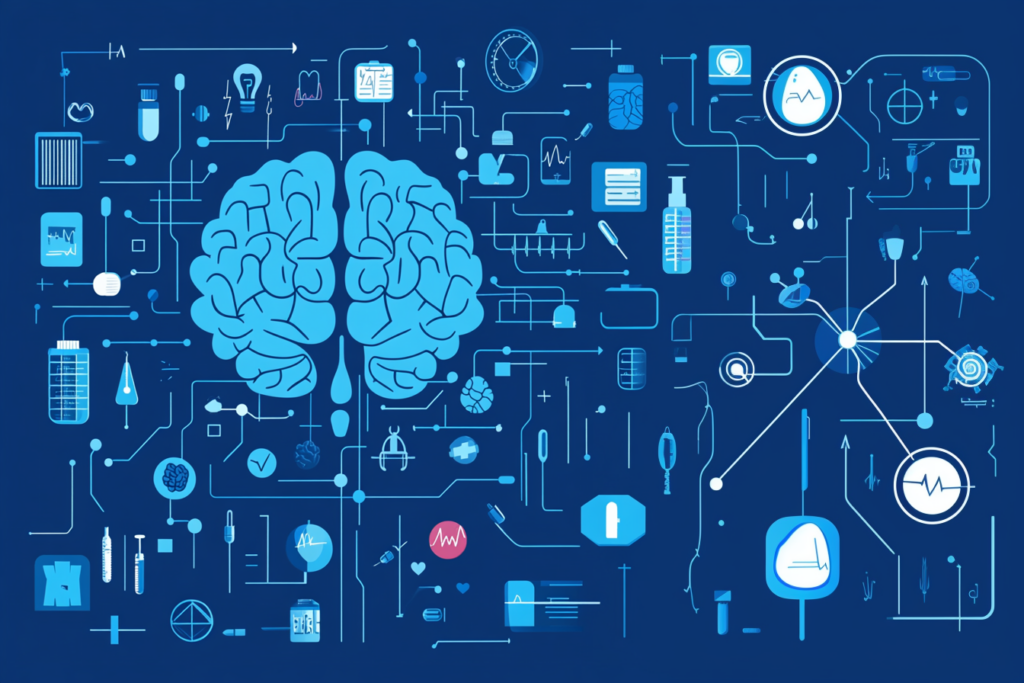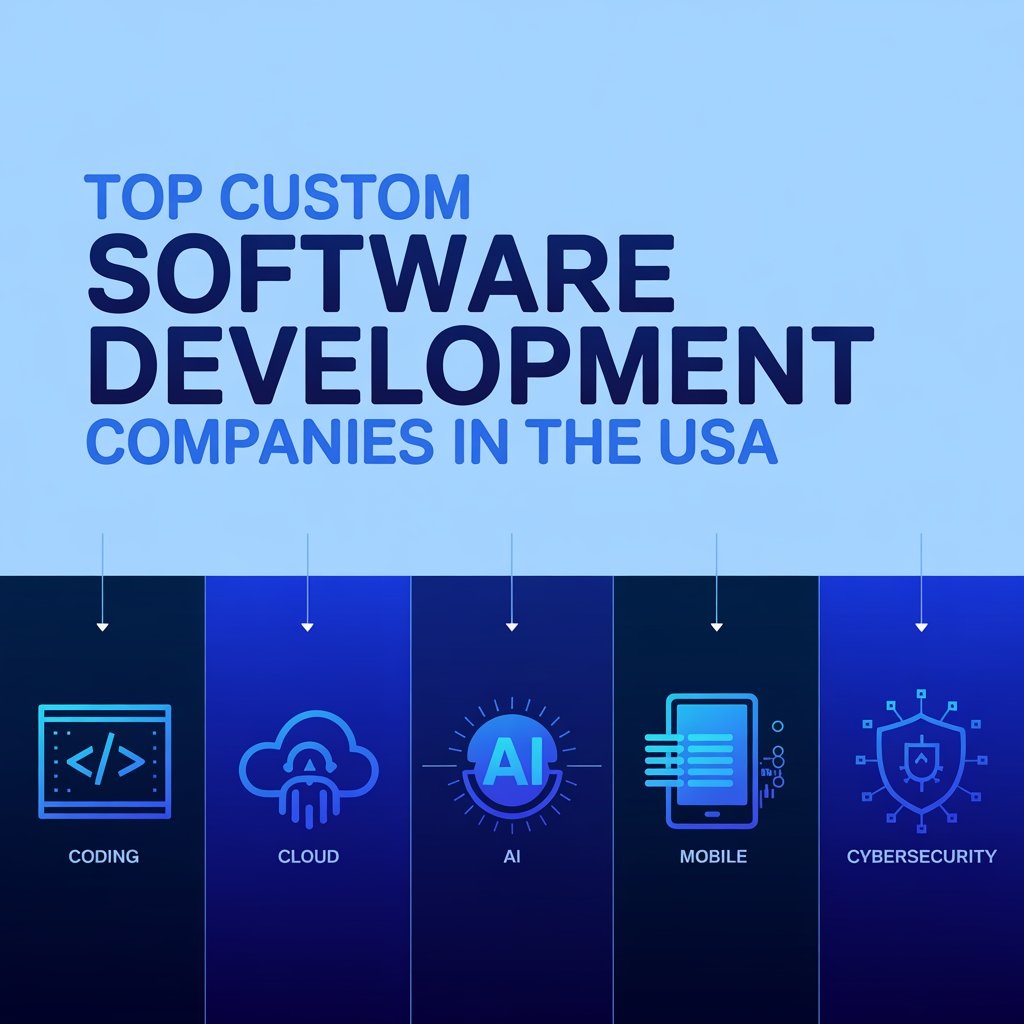Nearly 80% of all medical data in healthcare companies is unstructured, with primary care physicians spending an average of six hours daily on manual entry.
This calls for an approach to automate this process. Thankfully, we have Natural Language Processing in healthcare, which is transforming the industry by allowing computers to comprehend and interpret human language.
In 2023, the global NLP in healthcare and life sciences market size was valued at $4.9 billion, and it is anticipated to rise at a CAGR of 34.7% through 2030. This reflects the rapid adoption of NLP and its potential to improve patient care and operations.
To further understand how NLP can change the healthcare landscape, we will examine seven lesser-known use cases. We’ll cover everything from the challenges NLP helps overcome to its cons.
Keep reading to delve deeper into the more efficient NLP-driven world of healthcare.

Why Consider NLP in Healthcare?
Before we jump to the use cases, let’s first answer the question, “What is NLP in healthcare?” Natural Language Processing is a branch of artificial intelligence that enables computers to comprehend, interpret, and produce human language. By analyzing speech and text, it aids in the conversion of unstructured data into structured ones. When used in the healthcare industry, NLP makes it easier for healthcare experts to extract necessary insights from large amounts of medical data.
Challenges that NLP Solves
Since its adoption in healthcare, NLP has proven incredibly beneficial in dealing with challenges with patient records, massive unstructured datasets produced from clinical notes, and documentation.
Conventional data entry methods are mundane, inefficient, and come with the risk of human error. This can delay patient care as well as decision-making due to inaccurate data. That is where NLP steps in — it can streamline the processes by automating data extraction and enhancing the accuracy of documenting clinical data.
Benefits of NLP
There are numerous benefits of Natural Language Processing integration in healthcare. From enabling quick analysis of large datasets to quick decision-making, NLP helps in all areas of the industry. Besides, it also aids in improving communication between healthcare providers and patients through virtual assistants and chatbots that can respond immediately.
Moreover, by automating repetitive tasks such as data entry and documentation, NLP frees healthcare experts to focus on direct patient care, enhancing overall service quality and efficiency.

7 NLP Use Cases in Healthcare: An Overview
Below is an overview of the use cases we will cover in this blog.
|
Use Case |
Description |
|
Clinical Documentation Automation |
Automating note-taking and transcriptions |
|
Disease Progression Prediction |
Evaluating patient records to forecast disease outcomes |
|
Medical Literature Review |
Automating review as well as analysis of medical research |
|
Patient-Provider Communication |
Improving communication via NLP virtual assistants and chatbots |
|
Identifying Social Health Determinants |
Improving care by the extraction of social factors from medical data |
|
Drug Adherence and Medical Management |
Enhancing adherence by NLP-based alerts and reminders |
|
Fraud Detection and Billing Accuracy |
Detecting errors and frauds in medical billing and claims |
1. Clinical Documentation Automation
The Challenge
Clinical documentation is an extremely time-consuming process. However, since it is vital to ensure the continuity of care, healthcare professionals place major emphasis on it, significantly increasing their burden.
In fact, physicians spend nearly 50% of their time working on clinical documentation. Most of this time is spent writing notes, updating patient data, and entering data into Electronic Health Records.
Manually entering data is more than just a mundane task. It is also prone to errors. Moreover, even when data is transcribed with high accuracy, the amount of documentation a healthcare professional has to complete can tire them and lead to ineffective patient interaction.
How Can NLP Help?
NLP aids in streamlining the process by automating clinical documentation. Advanced NLP for healthcare tools can transcribe and interpret clinician-patient interactions and convert unstructured text or speech into structured data in EHR systems. This significantly frees up the time of physicians.
Moreover, some NLP tools can learn from physician preferences, ensuring that the final product is accurate and meets medical standards.
Benefits of Natural Language Processing
-
It saves healthcare professionals’ time by automating clinical documentation.
-
Minimizes the possibility of human error, thus improving transcription accuracy.
-
Improves overall efficiency and clinician-patient interactions.
Example: Tools such as M*Modal and Dragon Medical One leverage advanced speech recognition technology to convert spoken language into structured information.
Pros and Cons
|
Pros |
Cons |
|
Improves patient care time |
Specialized medical jargon may seem complex |
|
Minimizes documentation errors |
Needs ongoing training for new users |
|
Enhances clinical productivity |
Possible inaccuracies in speech recognition |
Ideal For: Clinics and hospitals seeking to minimize administrative burdens and boost operational efficiency.
2. Disease Progression Prediction
The Challenge
Chronic diseases like Alzheimer’s, cardiovascular disease, and diabetes need continuous monitoring. Disease progression prediction is vital to customize treatment plans and prevent complications. However, conventional methods generally depend on periodic check-ups and subjective assessments. This may result in missed opportunities for early, timely intervention.
How Can NLP Help?
NLP technologies analyze large amounts of patient information, including doctor’s notes, lab results, and medical histories. This helps in predicting how the disease may progress further. By extracting the necessary data from unstructured and structured datasets, NLP tools can determine early warning signs and provide physicians with predictive data to help navigate treatment plans.
For instance, NLP algorithms can analyze trends in a patient’s health records, recognize minor changes in symptoms, and anticipate the possibility of disease progression or complications. This aids doctors in intervening early, adjusting treatment plans, and enhancing outcomes.
Benefits of Natural Language Processing
-
NLP for healthcare helps detect early signs of disease progression, allowing timely intervention.
-
Disease progression predictions enable more customized, effective treatment plans.
-
Proactive management helps in avoiding complications or hospitalizations.
Example: Researchers have leveraged NLP to analyze physician notes and cognitive test results to anticipate Alzheimer’s disease progression. This predictive capability can delay the onset of extreme symptoms.
Pros and Cons
|
Pros |
Cons |
|
Improves decision-making |
May rely on incomplete information |
|
Enhances patient results |
Predictive models have ethical concerns |
|
Aids with early diagnosis and intervention |
Needs access to high-quality, comprehensive data |
Ideal For: Research institutes and medical facilities focused on personalized, proactive disease management.
3. Medical Literature Review
The Challenge
Healthcare researchers, as well as professionals, must stay up-to-date with medical literature. However, it can be challenging with so much existing literature and new research being published daily. Manually reviewing so many clinical studies and articles can be time-consuming and lead to key points being missed.
How Can NLP Help?
Natural language processing in medicine can substantially decrease the time spent reviewing literature by automating the process. Systems based on NLP can extract key findings and summarize medical research, including clinical trials and academic papers. Moreover, such systems can also rank articles according to relevance, ensuring that researchers and physicians emphasize the most significant studies.
Benefits of Natural Language Processing
-
Accelerates the process of meta-analyses and systematic reviews
-
Ensures physicians stay updated with the latest research and integrate the best practices into their treatment plans and decisions.
-
Automates the lengthy, tiring process of reading and summarizing medical literature, saving time for healthcare professionals.
Example: IBM Watson Drug Discovery leverages NLP to scan through large amounts of clinical trials and medical research data to extract insights to help navigate treatment plans and drug discovery protocols.
Pros and Cons
|
Pros |
Cons |
|
Aids in quickly integrating the latest studies in treatment plans |
Depends largely on the relevance and quality of the data |
|
Enhances evidence-based decision-making |
Needs regular updates to ensure accuracy |
|
Accelerates research process |
May skip minor nuances in literature summaries |
Ideal For: Medical professionals, researchers, and academic institutes looking for efficient ways to stay up-to-date with medical research.
4. Patient-Provider Communication
The Challenge
Effective communication between healthcare professionals and patients is essential to ensure positive outcomes. However, patients do not easily understand medical terminology, and physicians may not have time to explain. This gap may result in suboptimal care, reduced patient satisfaction, and confusion.
How Can NLP Help?
Among the several uses of natural language processing in medicine is communication – NLP-powered virtual assistants and chatbots can help bridge the communication gap between patients and healthcare providers. They can understand patient queries, offer customized health information, and even guide them in booking appointments or managing their treatment plans.
What’s more, NLP technologies can also break down complex terms into understandable language for patients. This makes it easier for them to comprehend their treatment options, test results, and diagnosis.
Benefits of Natural Language Processing
-
Routine inquiries can be handled by virtual assistants, reducing the workload of healthcare providers.
-
NLP supports patients in taking an active role in their health decisions.
-
Enhances patient understanding by translating complex medical terms into simpler ones.
Example: An AI-powered healthcare assistant, Ada Health, uses NLP to ask patients about their symptoms and offers suggestions for the next steps.
Pros and Cons
|
Pros |
Cons |
|
Enhances patient satisfaction |
May not understand certain dialects or accents |
|
Responds instantly |
Patients may prefer human or technological interaction |
|
Improves patient engagement |
May find some medical queries complex |
Ideal For: Healthcare systems and hospitals seeking to improve patient engagement, communication, and accessibility.
5. Identifying Social Health Determinants
The Challenge
Social determinants of health or SDOH, such as housing, access to food, and income, largely influence people’s health outcomes. However, these are not adequately noted in usual clinical assessments. This can lead to less effective care.
How Can NLP Help?
NLP medical records can analyze unstructured data like clinical notes and patient records to determine social factors affecting health. For instance, they can flag issues like poor housing situations. Once identified, healthcare professionals can provide comprehensive care that addresses the leading causes of their health issues using NLP clinical notes.
Benefits of Natural Language Processing
-
NLP ensures care plans are customized to the patient’s unique circumstances.
-
Addressing SDOH can result in improved health management.
-
NLP medicine offers a comprehensive understanding of an individual’s health by considering social factors.
Example: Healthcare systems use NLP to analyze clinical notes and recognize when patients mention problems related to transportation, housing instability, or food insecurity problems.
Pros and Cons
|
Pros |
Cons |
|
Improves care coordination |
Must be integrated with social services |
|
Enhances patient results by addressing leading causes |
Inaccuracy in social factors |
|
Offers a holistic view of patient health |
Consent and data privacy-related ethical issues |
Ideal For: Healthcare systems planning to integrate SDOH into their care models to enhance patient results.
6. Drug Adherence and Medication Management
The Challenge
Non-adherence to medications according to prescriptions is a significant problem that affects the outcomes of the treatment adversely. Nearly 50% of patients do not take their medications as prescribed, which increases rates of hospital readmissions and complexities in chronic illness management. This means poorer health results and higher healthcare costs.
How Can NLP Help?
NLP addresses medication non-adherence by analyzing the patient’s medical records and communications. By identifying signs and patterns of non-adherence, NLP can inform healthcare professionals about which individuals need targeted interventions like educational support or reminders.
Benefits of Natural Language Processing
-
Effective management of medication improves overall health results, particularly for chronic diseases.
-
When adherence is improved, hospital readmissions are also lowered by around 20% per month for some diseases.
-
Automated reminders and alerts ensure that patients take their medicines as prescribed by the physician.
Example: AI-powered systems like Medisafe leverage NLP to remind patients to take medicines according to their communication patterns and health data analysis.
Pros and Cons
|
Pros |
Cons |
|
Enhances patient results |
May arise issues during downtime |
|
Decreases healthcare costs |
Privacy concerns of patients |
|
Improves adherence |
Must be integrated with existing systems |
Ideal For: One of the best NLP use cases in healthcare is drug adherence and medication management. It is ideal for pharmacists and health organizations looking to enhance patient adherence to treatment routines.
7. Fraud Detection & Billing Accuracy
The Challenge
Billing inaccuracies and fraud are major problems in the healthcare industry, costing billions of dollars annually. They affect not only financial resources but also the integrity of the healthcare system.
How Can NLP Help?
Among the key NLP applications in healthcare is the technology’s ability to fight these challenges by analyzing Electronic Health Record data, insurance claims, and billing codes to highlight discrepancies and determine potential fraud.
By implementing advanced algorithms, NLP technologies can scan large amounts of unstructured data to identify anomalies and patterns that may imply fraudulent activities.
Benefits of Natural Language Processing
-
Healthcare companies can allocate their resources more effectively by automating the recognition of irregularities.
-
Early fraudulent claims detection reduces financial losses and promotes integrity.
-
NLP ensures precise and accurate billing.
Example: NLP-powered systems can automatically highlight irregularities in procedures and claims by patients, providing sufficient time for investigations.
Pros and Cons
|
Pros |
Cons |
|
Better financial health |
Needs continuous maintenance |
|
Guarantees billing accuracy |
Possible false positives |
|
Minimizes fraud |
High initial setup costs |
Ideal For: Financial auditors, insurance companies, and healthcare providers looking to prevent fraud and improve their system’s financial integrity.
Wrapping Up
Now that you know what natural language processing is in healthcare and NLP use cases in healthcare, you probably already understand how it has transformed the way we approach medical research, administrative efficiency, and patient care. Even though NLP use cases like chatbots are well-renowned, the lesser-known ones are equally effective.
From improving patient-provider communication to enhancing disease progression predictions, NLP is highly beneficial for addressing some of the key challenges of the healthcare sector. If you are part of the healthcare industry and want to integrate NLP into your current processes, consider hiring LITSLINK’s AI software engineers. Our team of professionals will provide you with tailored solutions that meet your requirements.
With natural language processing, the future of the healthcare industry is not just driven by data — it’s more personalized and smarter than ever before.





